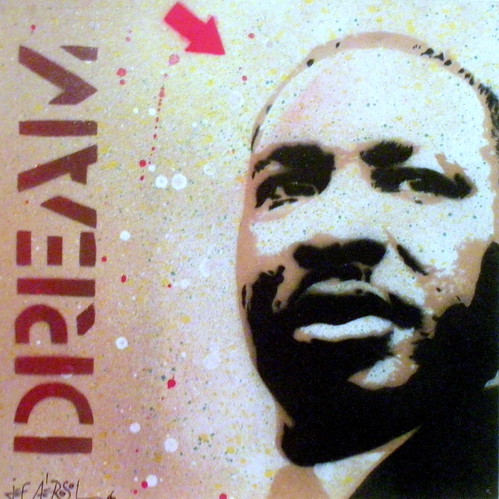
Leadership Power Struggle: Part One | Part Two | Part Three
“I am not interested in power for power’s sake, but I’m interested in power that is moral, that is right and that is good.” Dr. Martin Luther King, Jr.
As a newcomer to the center stage of the national civil rights movement in 1955, Martin Luther King, Jr. was not overly powerful. In a country that generally tolerated oppression against minorities, King lacked the positional power easily afforded white leaders. What’s more, as a young man, he had yet to establish the referent power that experience and history would bestow upon him. Nevertheless, the Montgomery Improvement Association’s organizers elected King their group’s president.
The MIA was a hastily formed organization created in the wake of Rosa Parks’ arrest to stage a boycott of the Montgomery, Alabama public bus system. Under King’s leadership, the Montgomery Bus Boycott lasted thirteen months and resulted in 90 percent of African Americans in Montgomery refusing to ride city buses.
In 1956, after a landmark U.S. Supreme Court decision ruled that bus segregation is unconstitutional, King led his constituency back onto Montgomery’s buses.
So how did a relatively unknown civil rights leader persuade his followers to boycott buses, while at the same time compelling the Court to end bus segregation? By harnessing the most potent power he did possess.
Nonviolent Resistance
Martin Luther King, Jr. was an advocate of nonviolent resistance. Having studied Gandhi’s Law of Suffering, King believed that voluntarily enduring the torment inflicted by an opponent enables the sufferer to eventually transform that adversary. Such unearned suffering, King told his followers, has redemptive value when in comes to persuading rivals to reconsider their views.
For that reason, he insisted that boycotters in Montgomery resist without violence.
King’s commitment to that belief was tested in January 1956 when his young family narrowly escaped the bombing of his home. While an angry crowd gathered outside the house intent on seeking revenge on his behalf, King calmed them with a plea to stay steadfast to nonviolent resistance.
In this moment of truth—when many of his followers would have forgiven him for resorting to physical retribution—King exhibited what would prove to be his greatest source of power: his integrity.
Integrity as Power
Followers perceive their leaders as having integrity when they see them taking actions that are consistent with the values they champion. Simply put, leadership integrity results from consistently acting in accordance with your stated moral values. In King’s Montgomery experience, integrity meant demonstrating unwavering support for nonviolence under even the most trying circumstances.
The good news for power-hungry leaders is that the power derived from integrity is available to everyone. In contrast to legitimate power, integrity is not dependent on a leader’s position within the organization. And unlike coercive and reward power, integrity does not stem from a leader’s ability to punish or incentivize behavior. Furthermore, integrity does not need an especially engaging personality like that needed to achieve charismatic power.
To acquire and keep integrity, all you need to do is live by the values you profess.
True power as a leader comes from possessing integrity. And when you have it, you can—as Martin Luther King, Jr. proved—harness it for greatness.
So how are doing at understanding and knowing your top values? And how are you at living by what you profess to be important to you? Do you have the personal integrity that can stand up against forces that infuriate or demoralize you? How do you use your power for the good of your team and your beliefs? I would love to hear your thoughts!
Leadership Power Struggle: Part One | Part Two | Part Three
——————–
George Brymer is the creator of The Leading from the Heart Workshop®
He delivers Leadership Workshops that help leaders at all levels evolve
Email | LinkedIn | Facebook | Twitter | Web | Blog | Skype: allsquareinc | (419) 265-3467
Image Sources: Jef Aesol farm4.static.flickr.com


[…] This post was mentioned on Twitter by Tom Schulte, George Brymer. George Brymer said: What's the secret to leadership power? http://linked2leadership.com/2010/07/06/the-power-struggle-part-three/ […]